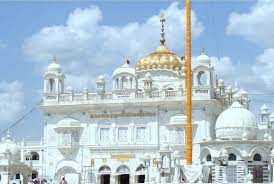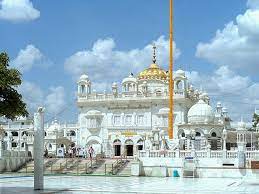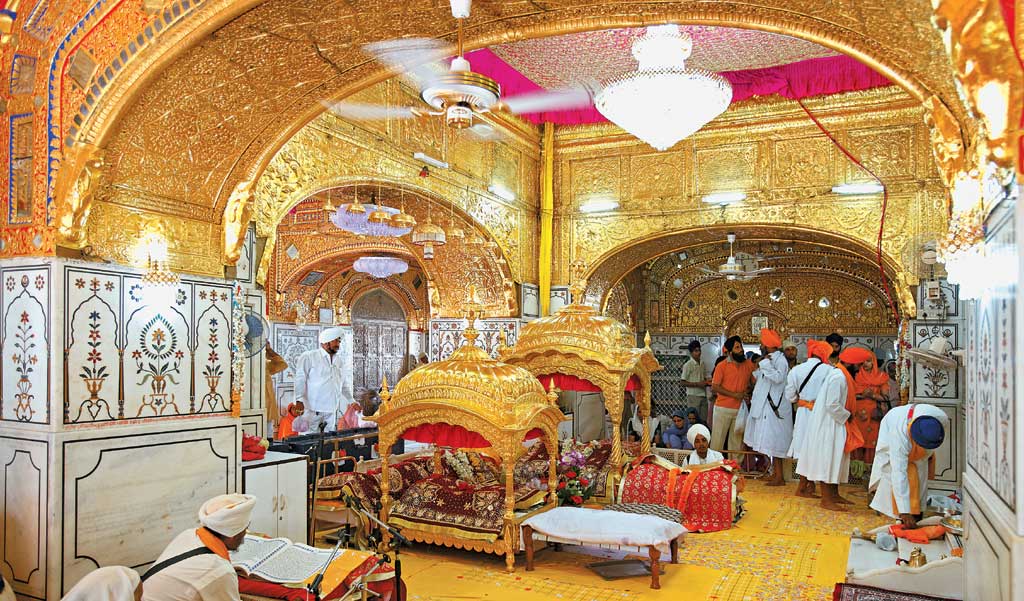Hazur Sahib[a] (Hazūrī Sāhib; lit. 'presence of the sahib/master'), also known as Takht Sachkhand Sri Hazur Abchalnagar Sahib, is one of the five takhts in Sikhism. The gurdwara was built between 1832 and 1837 by Maharaja Ranjit Singh (1780–1839). It is located on the banks of the Godavari River at the city of Nanded in the state of Maharashtra, India.
The structure is built at the place where Guru Gobind Singh Ji left his earthly life. The gurdwara within the complex is known as Sach-Khand (Realm of Truth). The inner room of the gurdwara is called the Angitha Sahib and is built over the place where Guru Gobind Singh ji was cremated in 1708.
Aarti prayers in Hazur Sahib Nanded
Hazur Sahib marks the site where Guru Gobind Singh ji had his camp in 1708. The Guru held his court and congregation here and was convalescing after being attacked by two would-be assassins. One of the attackers stabbed the Guru, and was killed by him with a single stroke of his talwar (curved sword). The other was killed by his followers as he tried to escape. The Guru's wound was deep, but initially healed after being stitched by an English surgeon sent by Bahadur Shah I, who served as his doctor, and Dara Shikoh before him. However the wound re-opened a few days later when the Guru was stringing a bow for one of his Sikhs and the Guru merged into the Primal (Joti Jot) after declaring the Guru Granth Sahib as his successor.
The other four takhats are: Akal Takhat at Amritsar, Takhat Keshgarh Sahib at Anandpur, Takhat Patna Sahib in Bihar District and Takhat Damdama Sahib in Talwandi Sabo, Bhatinda, Punjab.
Takhat Sachkhand Sri Hazoor Sahib (19.1528°n 77.3189°e) is the principal Sikh shrine at Nanded in the Indian state of Maharashtra. It marks the site where Guru Gobind Singh had his camp in 1708, after the departure of the emperor Bahadur Shah and where, in October 2008, the 300th anniversary celebration of the Guruship of Guru Granth Sahib took place.
Nanded is the holy city where Baba Banda Singh Bahadur had his ashram and Baba Banda Singh started his journey of Khalsa victory; hence it has a very high regard in the history of India.


